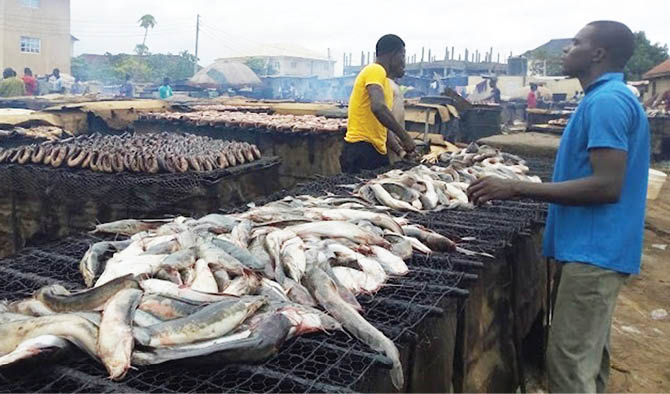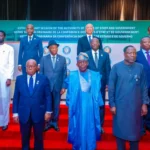On Monday, the Economic Community of West African States (ECOWAS) hosted a regional meeting in Abuja to discuss ways to improve the management of fishery resources and coastal ecosystems of West Africa.
The initiative, Enhanced Regional Fisheries Governance in Western Africa (PESCAO), is supported by the European Union (EU) and being implemented by the United Nations’ Food and Agricultural Organisation (FAO), L’Institut Agro, and the University of Portsmouth.
In order to adopt a sustainable management of the fishery resources of the ECOWAS maritime domain, more than 100 experts were invited by the organisation to discuss and draw up a roadmap for the use of the results of various researches.
These professionals include directors of fisheries and aquaculture, researchers, non-state players, and officials of the European Union, African Union, USAID, and the FAO.
What we want farmers to know as wet season begins
AGRO SOLUTIONS: Scientists strengthen sorghum against worldwide fungal threat
The PESCAO Programme Team Leader, MrAmadou Tall, stated that collaboration was key to developing sustainable fisheries management in West Africa.
“By leveraging the expertise of the various institutions, regional organisations and communities in the West Africa region, we set the narrative for fisheries governance and ensure that these vital resources are managed sustainably across the ECOWAS maritime domain and beyond.
“The evidence-based approaches prompted by PESCAO Component 3 and the outcomes of the Abuja regional meeting has taken into account the latest scientific knowledge crucial to achieving sustainable fisheries across West Africa,” he said.
Speaking at the event, the FAO representative in Nigeria and ECOWAS liaison officer, Mr Fred Kafeero, said the state of fisheries in the ECOWAS region was complex and varies, depending on the country and the sub-region.
“This vital source of aquatic foods and income for millions of people faces enormous pressure and threats of overexploitation, illegal, unreported and unregulated (IUU) fishing; poor management practices that cripple our progress towards sustainable fisheries; especially the small-scale fisheries sector, the backbone of our fishing communities, we must do more.
“Although we face such obstacles, the fact that we convene here demonstrates the mounting desire to enhance fisheries management through bolstering governance and technical proficiency, both in the public and private domains,” he stated.
Issues from PESCAO projects
The programmes that make up Component 3 of PESCAO are led by FAO, L’Institut Agro, and the University of Portsmouth respectively. Throughout their assignment under the PESCAO, they have enhanced communication between fisheries actors and researchers, increasing awareness of fisheries in West Africa and their management and data systems.
The Demersal Ecosystems Project (DEMERSTEM) project, run by the L’Institut Agro, aims to enhance stock assessment methods that are based on science.
Fisheries science partners from Mauritania, Senegal, Guinée Bissau, Guinee, Côte d’Ivoire, Ghana, Spain, Italy, and France took part in meetings and long training sessions, both in-person and virtually, over the course of the project’s four years to update regional knowledge on the process of stock assessment.
A set of new methods have been benchmarked to evaluate their suitability to regional stocks (regarding data availability or not). Other results concerning stock identification, sensitive habitat assessment, artisanal fisheries monitoring or ecosystem knowledge will be disseminated during the meeting.
Led by the University of Portsmouth, the Fisheries Management and Resilience of Small Pelagics in West Africa project (GREPPAO) has three components: research, articulation between research and public policy and training.
On the research side, the project was said to have published national and regional reports and 32 scientific articles on the issues of fish consumption in West Africa, on the economics of pelagic fish and on the issue of migratory fisheries.
The issues dealt with in relation to food security, wealth creation and the development of migratory fisheries in West Africa was the subject of intense exchanges with the technical partners and fisheries stakeholders, resulting in the provision of knowledge to support policy-making.
The FAO and partners collectively agree that improved regional cooperation is essential to address these issues for effective fishery governance.

 Join Daily Trust WhatsApp Community For Quick Access To News and Happenings Around You.
Join Daily Trust WhatsApp Community For Quick Access To News and Happenings Around You.

